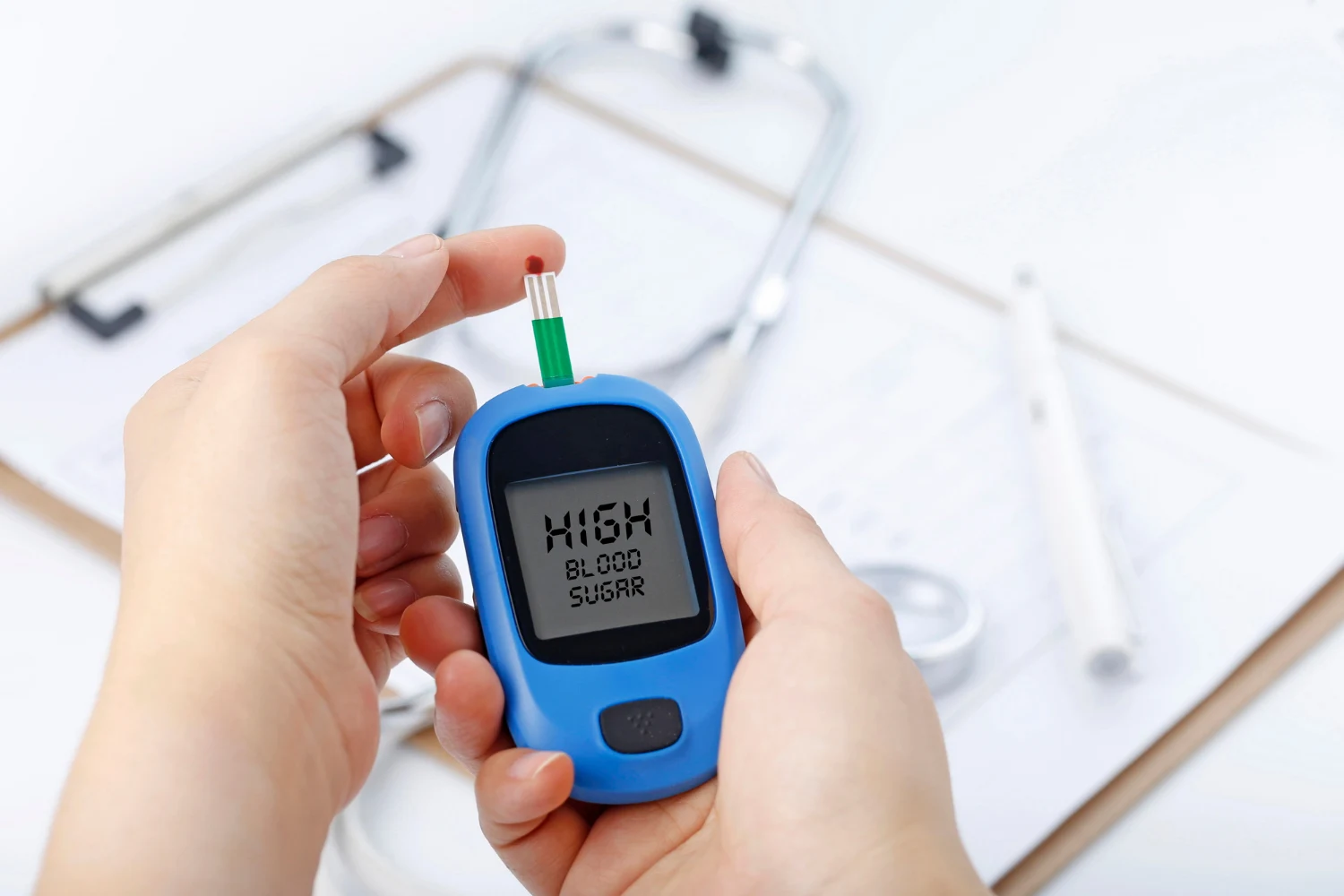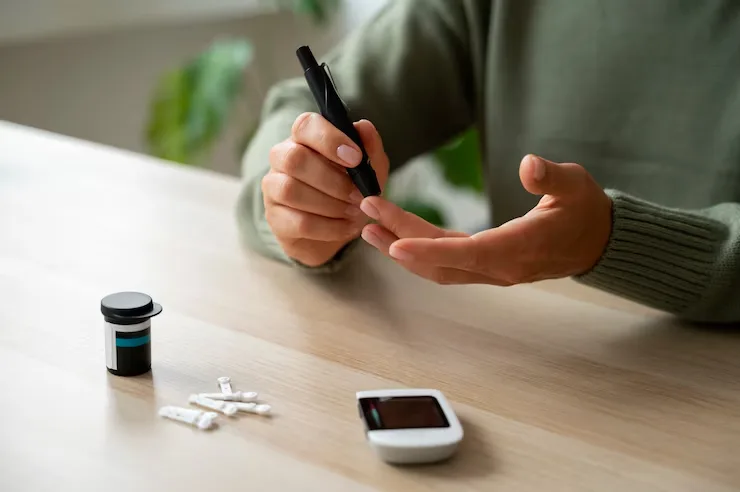How To Control Diabetes?
Category: Blogs
Diabetes is a chronic condition affecting millions worldwide, and managing it effectively is crucial to maintaining a healthy and fulfilling life. Whether you have been recently diagnosed or have been living with diabetes for years, understanding how to control diabetes is essential to prevent complications and improve overall well-being.
At Lokmanya Hospitals, recognized as the best hospital for diabetes treatment in Pune, we offer advanced, patient-focused care designed to help you control your diabetes and lead a healthier life. Our team of expert endocrinologists, nutritionists, and diabetes educators work together to provide personalized management plans tailored to your unique needs.
What Is Diabetes and Why Is Controlling It Important?
Diabetes is a metabolic disorder characterized by elevated blood sugar levels due to insufficient insulin production or the body's inability to use insulin effectively. Uncontrolled diabetes can lead to serious health issues like heart disease, kidney failure, nerve damage, and vision loss.
Controlling diabetes means maintaining your blood sugar levels within a target range to reduce the risk of these complications and improve your quality of life. But how to control diabetes involves a combination of lifestyle changes, medication, and regular monitoring.
What Are the Most Effective Ways to Control Diabetes?
1. Maintain a Balanced Diet
Diet plays a pivotal role in managing diabetes.
- What should you eat?
Focus on high-fiber foods like whole grains, fruits, vegetables, and legumes. Include lean proteins such as fish, chicken, and plant-based options. Avoid sugary beverages, processed foods, and excess refined carbohydrates that cause blood sugar spikes. - Why is portion control important?
Controlling portion sizes helps regulate calorie intake and prevents blood sugar from rising too high. - When to eat?
Regular meal timings help keep blood glucose levels stable. Avoid skipping meals.
2. Regular Physical Activity
Exercise enhances insulin sensitivity, helping the body use glucose more efficiently.
- What types of exercise help?
Aerobic activities like walking, swimming, and cycling combined with strength training are beneficial. - How often?
Aim for at least 150 minutes of moderate-intensity exercise weekly, spread over several days. - When to exercise?
Consistency is key; find a routine that suits your schedule.
3. Monitor Blood Sugar Levels
Regular monitoring helps track your response to diet, activity, and medications.
- Why is monitoring important?
It helps in making informed decisions about your management plan and preventing dangerous highs or lows. - How often should you check?
Depends on your doctor’s advice, but many patients test multiple times daily.
4. Take Medications as Prescribed
If lifestyle changes aren’t enough, medications or insulin therapy may be necessary.
- What medications are common?
Oral hypoglycemics and injectable insulin. - Why adhere strictly?
Skipping doses can cause blood sugar fluctuations and complications.
5. Manage Stress Effectively
Stress hormones can increase blood glucose levels.
- What techniques help?
Yoga, meditation, deep breathing exercises, and hobbies.
6. Maintain a Healthy Weight
Losing excess weight improves insulin sensitivity and reduces the burden on your body.
When Should You See a Doctor for Diabetes Management?
Regular consultations with your healthcare provider are crucial, especially if you notice:
- Persistent high or low blood sugar readings
- Symptoms like increased thirst, frequent urination, fatigue
- New symptoms such as numbness, vision changes, or wounds that won’t heal
Lokmanya Hospitals, regarded as the best hospital for diabetes care in Pune, offers state-of-the-art diagnostics and expert consultations to help you maintain optimal health.
Additional Tips for Effective Diabetes Control
- Stay Hydrated: Drink plenty of water to help regulate blood sugar.
- Quit Smoking: Smoking worsens diabetes complications.
- Limit Alcohol: Excessive drinking affects blood sugar and liver health.
- Get Adequate Sleep: Poor sleep affects hormone balance and insulin sensitivity.
- Regular Screening: Check for eye, kidney, and nerve complications annually.
Why Choose Lokmanya Hospitals for Diabetes Control?
Lokmanya Hospitals stands out as a leader in diabetes management by combining advanced technology with a compassionate approach. Our multidisciplinary team includes the best endocrinologists, dietitians, and diabetes educators who create personalized diabetes control plans to suit your lifestyle and health goals.
We prioritize education and empowerment, guiding patients through every step—from diagnosis to long-term management. With access to the latest treatments and continuous support, Lokmanya Hospitals ensures you get the best care to control your diabetes effectively.
Conclusion
Controlling diabetes requires a comprehensive approach involving diet, exercise, medication, and regular monitoring. Early diagnosis and consistent management can prevent serious health issues and allow you to live a full, healthy life.
If you’re looking for the top hospital for diabetes treatment in Pune, Lokmanya Hospitals offers unmatched expertise, technology, and personalized care to help you manage diabetes effectively. Our patient-centric approach and commitment to excellence make us the trusted choice for diabetes control.
Take the first step toward better health today by consulting with Lokmanya Hospitals—where your well-being is our priority.
Frequently Asked Questions
- Why is controlling blood sugar important in diabetes?
Uncontrolled blood sugar damages blood vessels and organs, increasing the risk of severe complications. - What foods should be avoided by diabetics?
Avoid sugary drinks, sweets, white bread, and fried foods that cause blood sugar spikes. - When should I test my blood sugar?
Testing frequency varies but usually includes fasting, post-meal, and bedtime checks. - How much exercise is recommended for diabetes control?
At least 150 minutes of moderate exercise per week, with a mix of aerobic and strength activities. - Can stress worsen diabetes?
Yes, stress hormones can raise blood sugar levels, making control difficult.

Previous blog

How To Reduce High Blood Pressure?
Next blog






